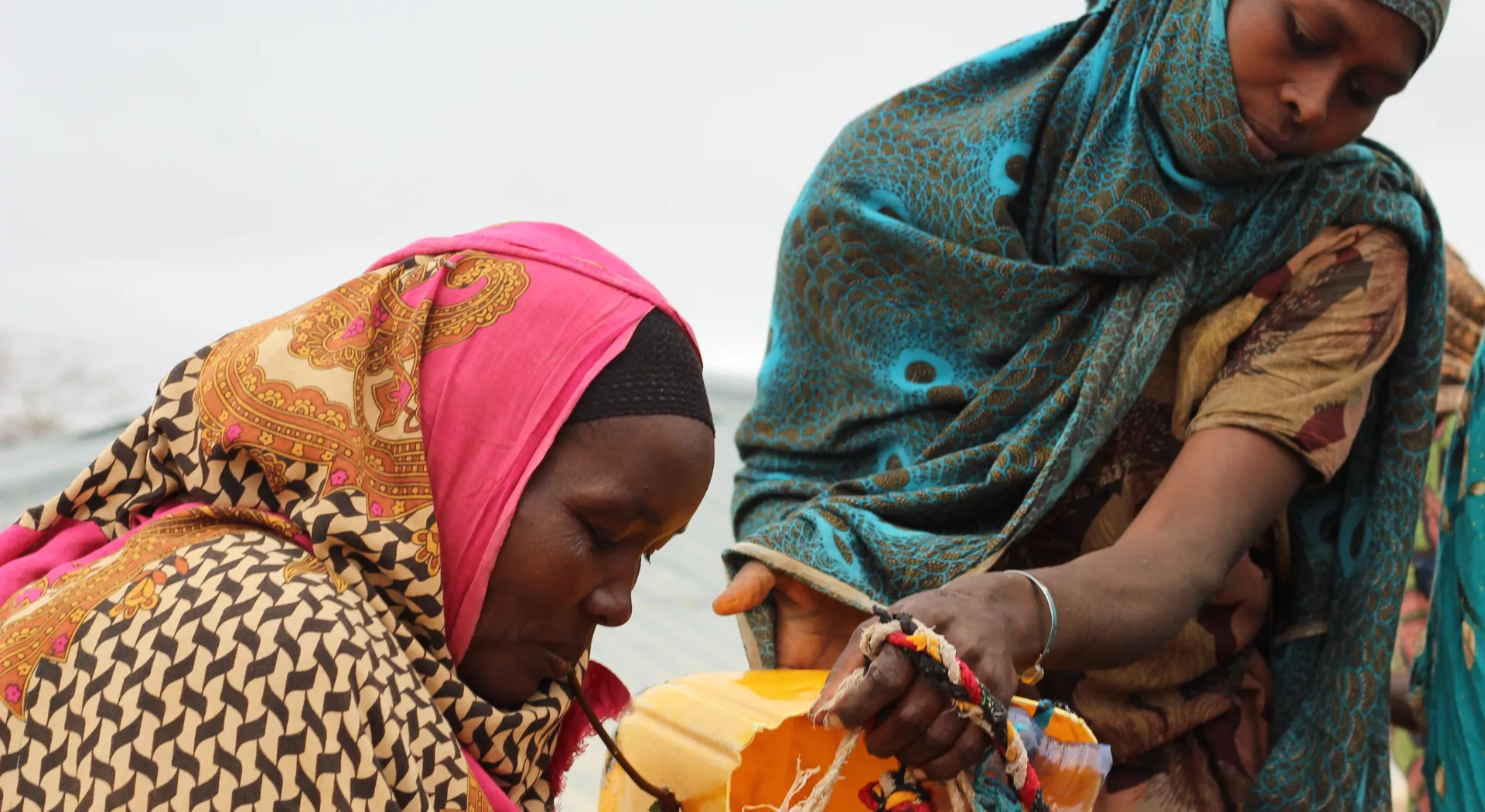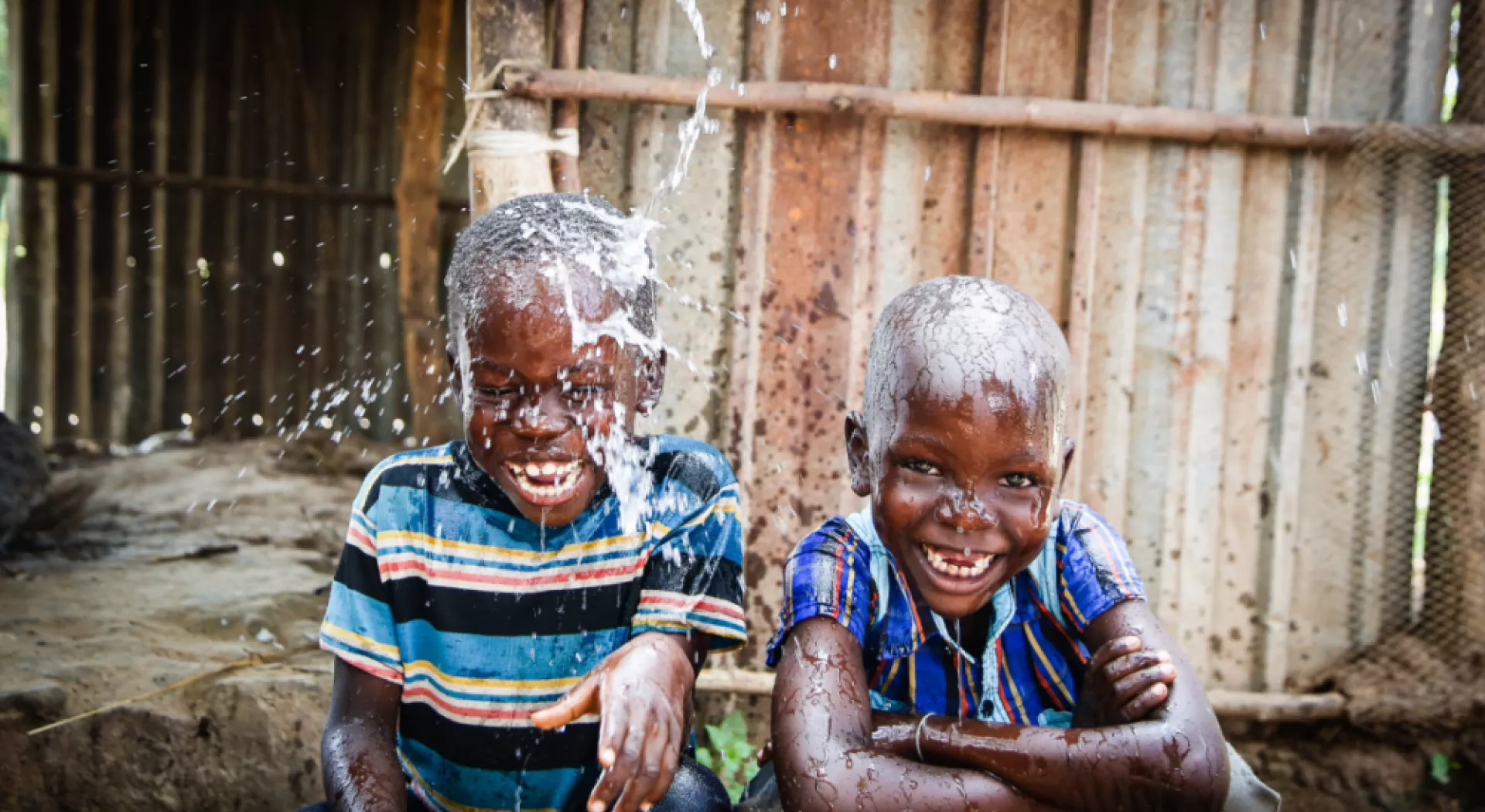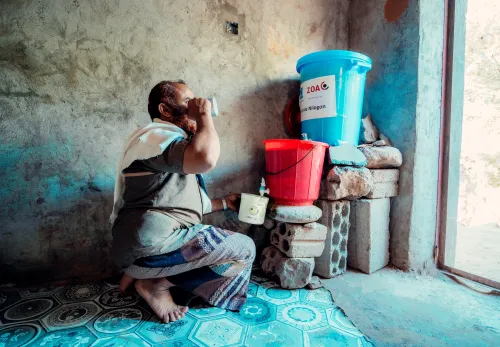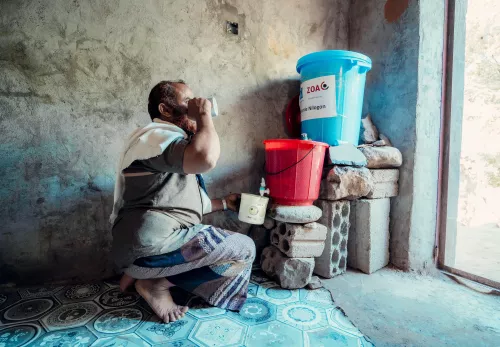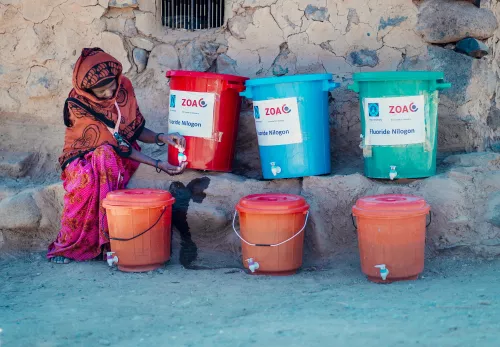Emergencies and crises
Clean and safe water is a basic and live-saving necessity for every person on earth. Still millions of people, mainly children, annually die or are seriously sickened by a host of water-related ailments—many of which are easily preventable. ZOA provides safe drinking water in situations of conflict or disaster, where limited or poor access to water and sanitation is further aggravated. Together with local organisations and businesses, ZOA constructs new or rehabilitates existing but damaged water infrastructure. Technical solutions are suited to the local situation and range from extremely deep boreholes, to rainwater or fog harvesting techniques.

